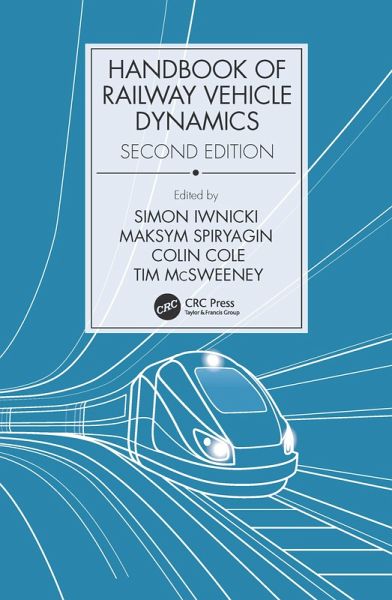
Handbook of Railway Vehicle Dynamics, Second Edition (eBook, PDF)
Versandkostenfrei!
Sofort per Download lieferbar
242,95 €
inkl. MwSt.
Weitere Ausgaben:

PAYBACK Punkte
121 °P sammeln!
Handbook of Railway Vehicle Dynamics, Second Edition, provides expanded, fully updated coverage of railway vehicle dynamics. With chapters by international experts, this work surveys the main areas of rolling stock and locomotive dynamics. Through mathematical analysis and numerous practical examples, it builds a deep understanding of the wheel-rail interface, suspension and suspension component design, simulation and testing of electrical and mechanical systems, and interaction with the surrounding infrastructure, and noise and vibration. Topics added in the Second Edition include magnetic le...
Handbook of Railway Vehicle Dynamics, Second Edition, provides expanded, fully updated coverage of railway vehicle dynamics. With chapters by international experts, this work surveys the main areas of rolling stock and locomotive dynamics. Through mathematical analysis and numerous practical examples, it builds a deep understanding of the wheel-rail interface, suspension and suspension component design, simulation and testing of electrical and mechanical systems, and interaction with the surrounding infrastructure, and noise and vibration. Topics added in the Second Edition include magnetic levitation, rail vehicle aerodynamics, and advances in traction and braking for full trains and individual vehicles.
Dieser Download kann aus rechtlichen Gründen nur mit Rechnungsadresse in A, B, BG, CY, CZ, D, DK, EW, E, FIN, F, GR, HR, H, IRL, I, LT, L, LR, M, NL, PL, P, R, S, SLO, SK ausgeliefert werden.



